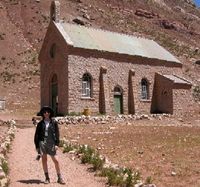"By week three, I couldn't take it any more"
I was at a conference last week where I was giving a workshop on CEO transitions, and afterwards I stepped into another session already in progress which was a poverty similation. Participants role-play the lives of low-income families, from parents trying to care for their children to senior citizens trying to get by on Social Security. The task of each family is to provide food, shelter and other basic necessities during the simulation. To do so, they interact with various institutions - schools, clinics, social service providers, utility companies, child care providers, employers, banks, pawn shops and payday lenders, transportation systems - which are "staffed" by low-income volunteers from the community.
Each person and family has a profile outlining their situation, and the simulation takes place over four fictional weeks. The simulation has been used broadly around the US, and I have always heard it described as powerful, eye-opening, transforming. Participants learn how complicated everything becomes in a cash economy, the illogic of the social service systems, the mass transit system that can't get you from your babysitter to your job on time.
This was the first time I've seen it in person, and the quotes from the participants during the debriefing discussion bore that out. I paraphrase:
And so I've been wondering - is it possible to design a similar simulation that would help people understand the situation of someone living in a poor, oppressed community in another country, and how it comes to be that violence "seems like a pretty good option?" Perhaps one of the Israeli-Palestinian collaborative organizations has developed such a thing. Because it seems to me that empathy goes a long way toward finding better solutions to problems, and there are reasons that most people decide that violence, or crime, are better options than just obediently going to school and doing what the system tells them to do. Maybe if we come to understand those reasons better, we'll be more inclined to help those people and less inclined to hate them, lock them up, or shoot them.
Anybody know of such a thing?

No comments:
Post a Comment